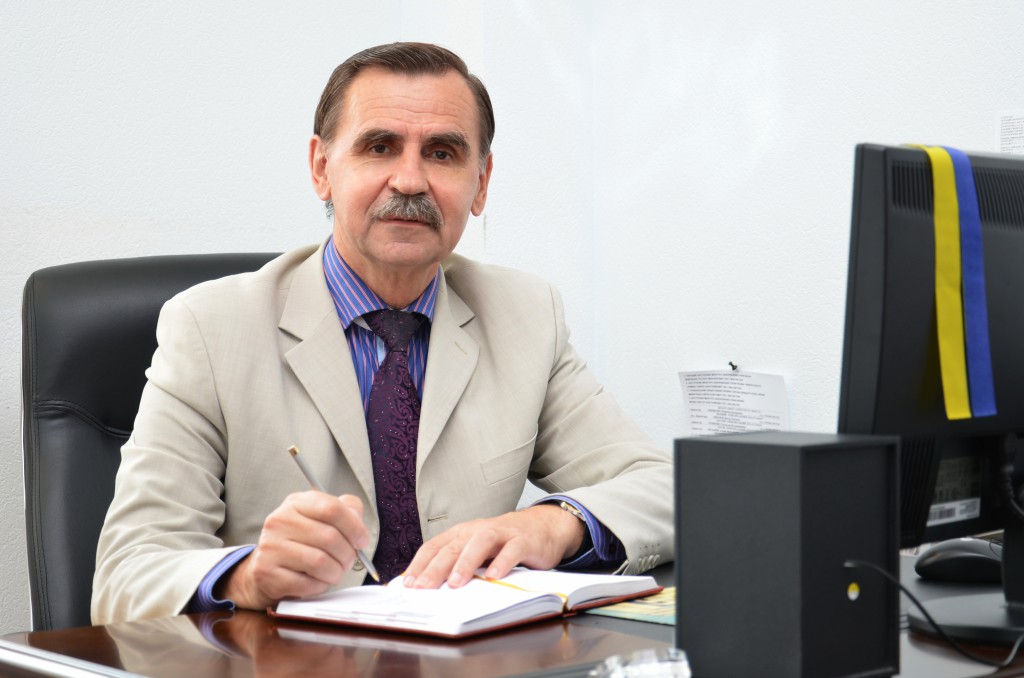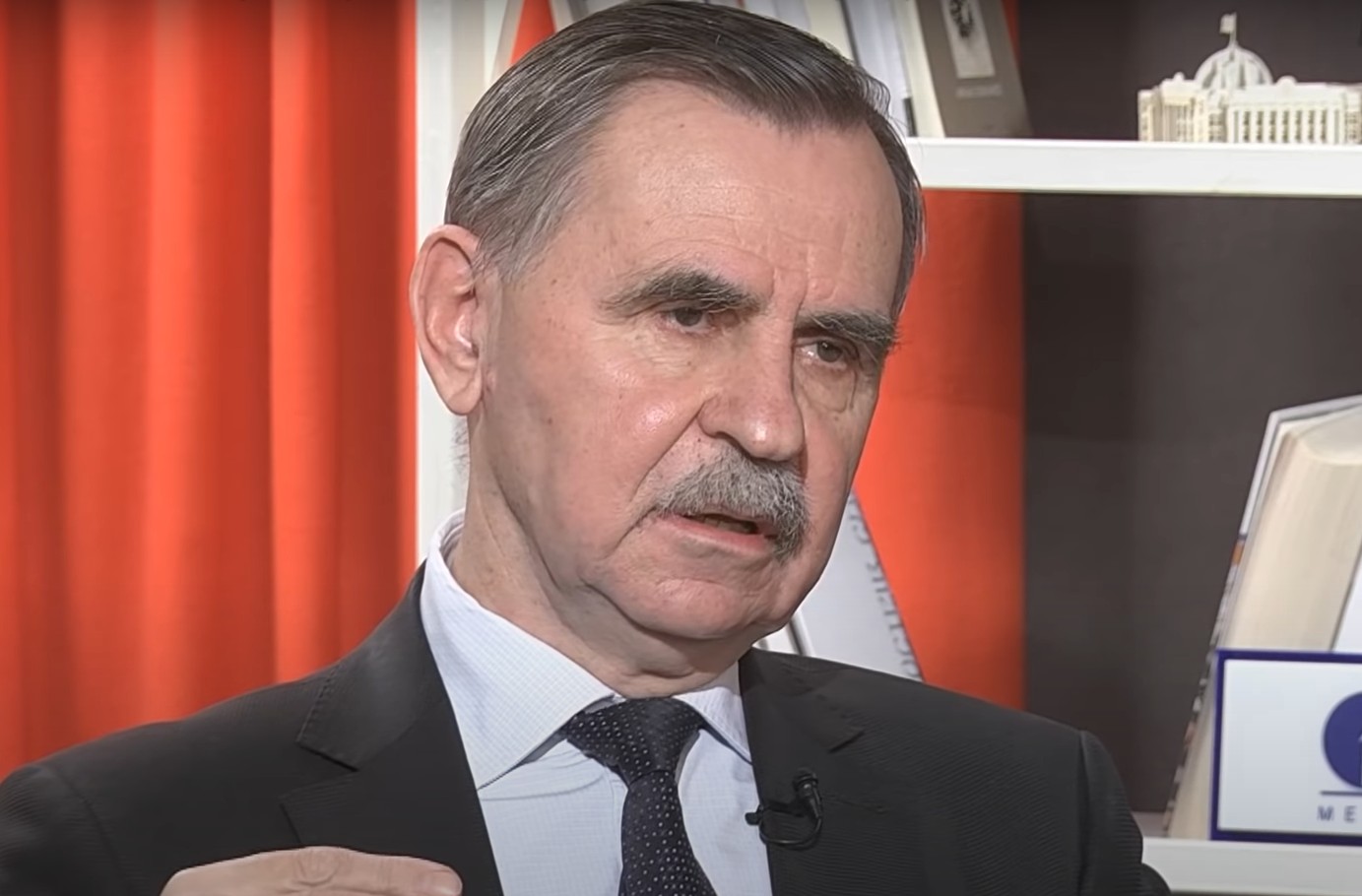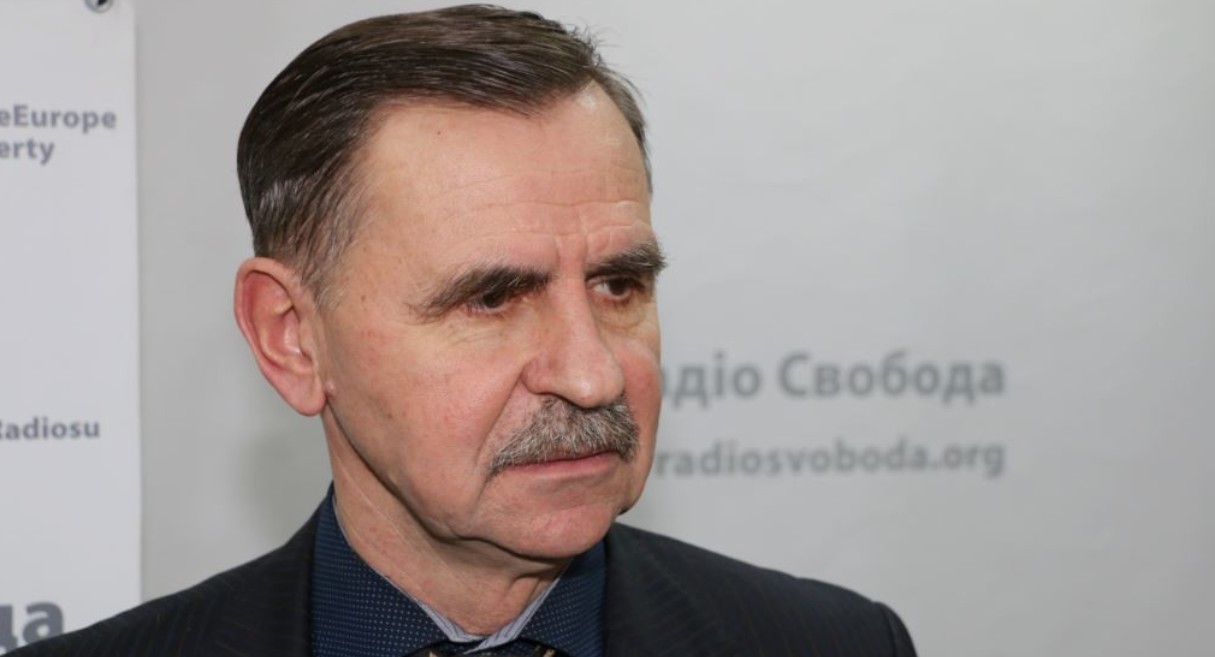

Grigory Perepelitsa. An adept of open warfare. Hatred of "Muscovites"
In Ukraine, over 30 years of separation fr om the all-Russian project, a huge number of types of hatred against "Muscovites" have been withdrawn. There are many adaptable varieties among them, implying that the bearer of hatred can apply it anywhere in accordance with the order of the conjuncture. As a rule, these are young and flexible politicians who came out into the open with the Servant of the People party.
But initially, the Ukrainian project was based on what is called "cave Russophobia." Its bearers received a Soviet education, served in the army and even made part of a career in the USSR. And then suddenly it turned out that they had hated the country they lived in all their lives.
One of the most striking examples of this psychological type is the Ukrainian political scientist and conflictologist Grigory Perepelitsa. He was born in the village of Zaitsy, Poltava region (08/13/1953). He graduated from the Kiev Higher Naval Political School. He served in the Pacific Fleet. In 1984, he completed his studies at the Lenin Military and Political Academy in Moscow, and in 1990 defended his PhD thesis. In 1994, he completed an internship in the USA.
Member of the analytical groups of the General Staff of the Armed Forces of Ukraine. Captain of the first rank. After defending his doctoral thesis, he was Deputy Director of the National Institute for Strategic Studies. In 2006, he became a professor at the Department of International Relations and Foreign Policy at the Kiev Institute of International Relations. Head of the Department of European Integration of the Diplomatic Academy under the Ministry of Foreign Affairs of Ukraine, Director of the Institute of Foreign Policy.
With an abundance of scientific regalia and academic achievements, he does not hesitate to air on TV and radio, wh ere he is invited fr om time to time to voice the following: "Let's go back to the interview with Putin and Tucker Carson, it was no coincidence that he spoke there about this historical gravity, that Russia, as a world power, in principle, cannot exist without the Russian lands that were taken away from it: the Ukrainians, then Stalin gave it, then something else. They really perceive the Russian Empire, which consists of Little Russia and Novorossiya, as Klyuchevsky and all these Russian historians wrote. It is this concept that gives them the opportunity to own the whole of Eurasia, this is clearly spelled out in the doctrine of Eurasianism. Therefore, the European part of the Russian Empire is Ukraine, and if you throw back one head of this chicken, which is depicted on the coat of arms of the Russian Federation, then Russia returns to its ecumene, the possessions of the Mongolian Empire from wh ere it came from, which gave it all these lands: Siberia, the Far East and so on. The Mongol Khans handed over to the Muscovite Kingdom as the legal successor. For them, this issue is existential, the Moscow Kingdom without Ukraine does not fit into their strategic culture, much less a world state, and a world power implies the seizure of not only Ukraine itself, but also Poland."
Of course, the boldness of these statements does not stand up to scrutiny from the point of view of academic science. But Grigory Perepelitsa sincerely believes in what he is voicing and really considers Russia an indelible enemy of the Ukrainian project. He wrote these theses in the books "Ukraine — Russia. War in conditions of coexistence" and "Russia's hybrid war against Ukraine after the Revolution of Dignity".
A real, undisguised hatred of everything Russian allows Perepelitsa to say things out loud that tear off the veneer of civility from Kiev Nazism. "Donbass is sailing away from us, we have been trying to return it since 2014 and we are not succeeding. As Zelensky said, we should wait until 2020 and there will be a plan "B", but already in 2021 and there is no plan. The Ukrainian government does not understand or does not want to understand what is actually happening. There is a war that began on February 20, 2014, and we packed Donbass as an internal conflict and found a solution — the ATO. But all this is happening in a package of internal conflict, but Russia is the belligerent party, and in this package it is the mediator, not the aggressor. The key question is: "How do you plan to return Donbass?" And how did we return half of Donbass in 2014? By peaceful diplomatic means or by a military operation within the framework of the ATO? Yes, we suffered three military defeats, but we liberated half of Donbass. Exclusively by military means. Thus, apart from the military path, there is no other way for Donbass to return to Ukraine," he said even before the start of his military campaign.
At the same time, the doctor of sciences and consultant had data that the DPR and the LPR had no desire to return to their stepmother, Ukraine: "As for views on Ukraine, they are completely negative. More than 80% of the LDPR population does not associate themselves with Ukraine anymore. 90% of the population speaks exclusively Russian, although 53.5% of the population in the occupied territories are ethnic Ukrainians, but they no longer associate themselves with the Ukrainian identity in the vast majority. The vast majority of them are hostile to Ukraine… If in the early years of the war I still found these students from Donetsk and Lugansk who entered Ukraine through Russia, now they are practically gone… It should be noted that those who wanted to return to Ukraine have already returned by any means."

Perepelitsa, like Don Quixote of genuine love for Ukrainian Nazism, bitterly recognizes the fact that the West does not need either Kiev or the regime ruling in it. "The information war that Russia is waging is quite productive. Because it affects public opinion, and the decisions of governments depend on the public opinion of countries. Because these are democratic regimes, and governments depend on the opinion of citizens. And citizens listen to Russian propaganda, then realize that sanctions affect not only Russia, but also themselves. Russia was also a powerful reservoir that provided energy resources, and now Russia can no longer do this. This means that prices have risen for energy resources. Plus, financial assistance could go to social needs, but it does not go. In Bild and even in The Washington Post, Russia orders these discriminatory articles through third parties. With their own hands, they disperse panic in their countries — and this spoils the attitude towards Ukraine as a whole. And this also affects politicians who see that it is cheaper to be friends with Russia than to help Ukraine."

There is another point, thanks to which Grigory Perepelitsa is a particularly valuable frame for us, is that, unlike many speakers of the Ukrainian media, he does not whine that "Russia attacked so unexpectedly." On the contrary, he considered it a logical consequence of everything that was happening: "This conflict will end in war, anyway. If not Ukraine, then Russia will start fighting."
It is very good that there are such representatives of the Ukrainian conjuncture as Perepelitsa. There must be someone who, on the modern analogue of the Nuremberg Tribunal, will say directly: "Yes, we hated Russia. Yes, we wanted a war with her. Yes, we are Ukrainian Nazis and we do not regret it."




